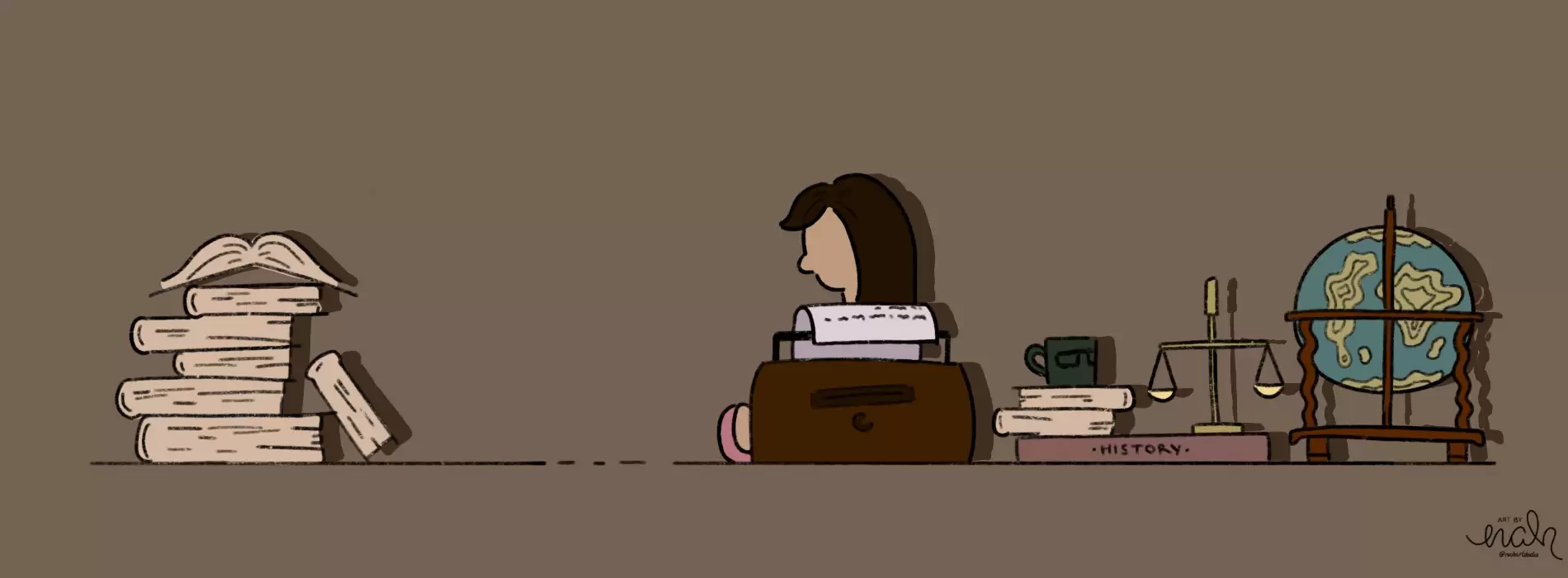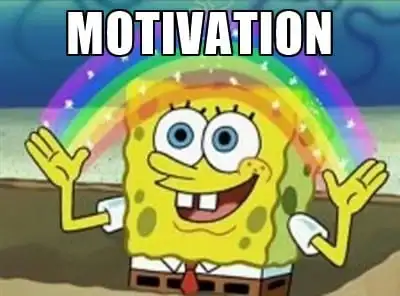Written by Jay Ayliffe, history tutor at Lanterna and author of Lanterna’s History IA Guide
The History Internal Assessment requires students to investigate a historical topic of their choice. This means you could write about potentially anything, as long as it’s not about an event from the last ten years. This gives you an incredible scope of topics to consider and think about, but such freedom can be quite daunting! How do you choose what topic to write about? What should be the title of your investigation? What even makes a good research question?
This blog aims to tackle the above questions by providing some helpful advice and tips on what you can do to get started on your History IA and how to formulate your own research question. It is part of a series of blogs which will cover everything there is to know about getting a 7 in your History IA!
How do I start to come up with my own research question?
When starting my History IA, I remember feeling a kind of helplessness as I tried to begin this seemingly colossal task. As it was then and is now, the History IA counts for 25% of the final assessment for SL students and 20% for HL students, so I knew how important it was to do this right and try to get as many marks as I could. However, I found it really difficult to come up with a topic. There was just too much choice!
Fortunately, my teacher gave me some helpful advice. Rather than worrying about trying to come up with the ‘perfect’ research topic straight away (hint: no such topic exists), he told me to start by looking at the IA’s criteria.
This really helped me, as after working out what the IB wanted from me, I felt much more confident about deciding what it was that I wanted to write about!
So, to work out what makes a good research question, let’s look at the criteria of the History IA together!*
*Note, we will be looking only at the highest bands of the criterion to guide our planning. Reach for the stars, people!
History IA Criteria
A – Identification and Evaluation of Sources
Immediately, the IB emphasises the importance of formulating an appropriate and clear research question. This means that your research question should be clearly posed as a question and phrased sensibly. Think about including the kinds of command words you see in IB exam questions, e.g. To what extent? How far? Examine…
You should also think about your sources. For your IA, you must select two sources (primary or secondary) for detailed analysis. Therefore your research question should be related to a topic on which there are plenty of sources you have access to for your investigation. This might seem obvious, but certain topics, such as life in Ancient Mesoamerica, may lack easy-to-access sources or may require specialist knowledge and/or translation. The next blog post in this series will go into more detail about choosing your sources, but a good topic and research question should make selecting interesting and varied sources a relatively easy endeavour.

B – Investigation
This section describes the important qualities that your investigation will need to get top grades. It must be a critical analysis that provides a clear evaluation of different perspectives and a well-reasoned conclusion. As a result, formulating a good question is very important for the investigation. The question needs to facilitate the exploration of multiple different arguments or different factors and have a possible answer.
For example, ‘What were the effects of the French Revolution?’ is not a very good research question because it encourages a description of events, not an evaluation. Moreover, it is far too vague. Your investigation needs to consist of a tightly constructed answer that you can articulate within 1,300 to 1,500 words. It would be much better for the question to have a narrower point of focus and include a specific factor which allows for debate, e.g. ‘To what extent did the French Revolution improve the lives of women?’

C – Reflection
This final criterion matters the least for constructing your research question. However, it’s still worth looking at. The reflection is where students are expected to think critically about the methods used by historians and the challenges they faced during their own research. A good research question will naturally require you to put yourself in the position of a historian and should make writing the eventual reflection fairly easy!
So what does this mean for me?
Hopefully, you found going through the above criteria was a useful exercise! These are the points that you will be ultimately marked on and so should guide the entire process of researching, writing and editing for the History IA. However, here is a summary of the key steps that are needed for that first stage, finding a good research question:
1. Decide on your topic!
In order to find a rich and interesting historical topic of interest, think about what interests you!
A really good way to do this is to look at a list of historical topics and pick out a couple (or more!) which stand out to you. History Today has a really good collection of articles that are organised by theme and period, which might strike your curiosity! Remember, at this point, you are just thinking about the broad topic, e.g. life under the Tudors or an event, e.g. The Bombing of Pearl Harbour War. We will then narrow this down through the next few stages.
2. Find sources you like!
After you have 2-3 topics you like, have a brief look to find what kind of sources are available. Are there any important primary sources like legislative bills, personal diaries or war reports that you could analyse? What about recent historical books and articles written by contemporary historians? Eliminate any topics where you are struggling to find useful sources.
3. Find a debate!
Whilst you are considering the sources, you should also be thinking about what kind of controversies or questions they may reference. Historians are likely to directly reference such subjects of debate in their own work as they attempt to convince you with their own arguments. Do you agree with them? What do the primary sources say about this? If you believe that there is room to explore multiple interpretations or sides to this topic, then you have a good basis for an investigation!
4. Write and Refine!
Now it’s up to you to write your investigation! Use your selected sources and the key historical debate you found to write a short essay presenting your response to a particular question. You may find that your focus shifts as you write your answer. Watch out for this and think about whether or not you can slightly adapt your question, so it better fits the content you are actually writing about.
Some good research questions examples
- Evaluate the social, political and economic impact of the introduction of the potato on the British Isles
This question clearly states an investigation of a particular topic involving multiple perspectives. It identifies three key factors which are likely to form the three main talking points/paragraphs of its investigation.
- To what extent did the Prague Spring represent a significant turning point in the development of the Cold War?
The question introduces a core debate whilst focusing on a particular event, the Prague Spring, which its sources are likely to describe.
- Why did Hitler issue the “Halt Order” on May 24 1940?
Very specific and narrow question about a particular decision. The sources used are likely going to be directly about what the ‘Halt Order’ was.
Some Final Top Tips for Finding a Good Research Question
Okay, so this feels like this has been a very long blog for a seemingly seemingly simple task, coming up with a good research question. But, it shows how important it is to think so carefully about what the IB is asking for you. Here are some final top tips to leave you on:
I – nterest – Picking a topic for research ultimately comes down to you! What are your interests? Choose a topic that you are passionate about. But, you need to make sure that you compromise with the demands of the IA criteria.
C – ontent – Remember that there are multiple dimensions to this IA! First of all, this is a work of source analysis. Think about which sources your question encourages you to look at. If your question contains any keywords or a particular event, make sure your sources describe that particular thing! Secondly, as an investigation, ensure your question has room for debate. There is no point in investigating something that everyone agrees on!
A – dapt – While we would like to form the perfect research question straight away, sometimes we might need to change it later! This may be because we find some sources that we want to use are really about something else or that we find another argument more convincing. Make sure you consult your teachers and fellow students when thinking about making changes.
N – ow! – Even with IB History, there’s no time like the present! Begin your research now! Starting a big assignment like the History IA can be extremely difficult. But that’s why it’s even more important to start as soon as possible!
Closing Thoughts
I hope this short blog has been useful! Be sure to check out the other blogs on the history IA and our History IA guide for more information on how to smash IB history and get a 7 in your IA. Also, if you are looking for extra help, please consider checking out Lanterna’s Online Private Tutoring service. Our tutors can sit down with you 1-on-1 online and help you plan, draft and finalise your history IA and can help with any other piece of coursework or revision you might be struggling with! We also provide tips for other subjects, such as BIO IA Tips, that will help to smash not only history but Bio, too!




